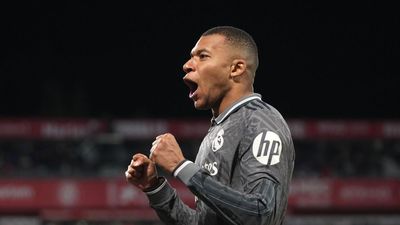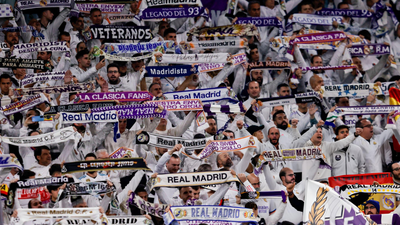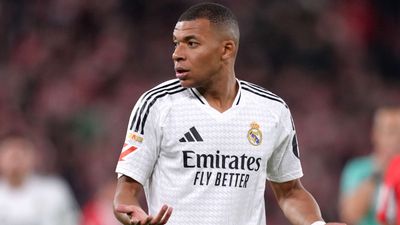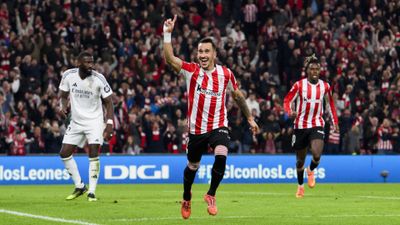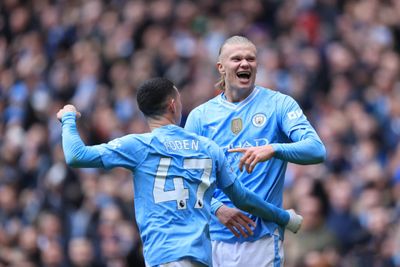Quick Betimate
Popular Leagues
-
UEFA Nations League
-
England (88)
- FA Cup
- Premier League (1)
- Championship (12)
- League 1 (2)
- League 2 (12)
- National League (12)
- National League North (1)
- National League South (1)
- EFL Trophy
- Premier League 2 (4)
- Championship Women (5)
- Derbyshire Senior Cup
- Development League 2 (16)
- FA Cup Women (1)
- FA Trophy (1)
- Isthmian Cup
- Isthmian Division One North
- Isthmian Division One South (2)
- Isthmian Premier Division (2)
- National League Cup
- Northern League Division One
- Northern Premier League (1)
- Reserve Matches
- Southern Premier League Central (2)
- Southern Premier League South (2)
- Super League Women (2)
- U21 Premier League Cup (2)
- Northern Ireland Championship
- Northern Ireland Championship Women (2)
- Northern Ireland Cup (1)
- Northern Ireland Intermediate Cup
- Northern Ireland League Cup Women
- Northern Ireland Premier
- Northern Ireland Premier Intermediate League
- Northern Ireland Premier League Women (4)
- Northern Ireland Reserve League
- Scotland Regional Cup
- Wales League Cup Women
-
UEFA Champions League (3)
-
UEFA Europa League (4)
-
Spain (217)
- La Liga (10)
- Segunda (11)
- Tercera Group 1 (1)
- Tercera Group 2 (9)
- Tercera Group 3 (9)
- Tercera Group 4 (1)
- Tercera Group 5 (9)
- Tercera Group 6 (9)
- Tercera Group 7 (9)
- Tercera Group 8 (9)
- Tercera Group 9 (9)
- Tercera Group 10 (9)
- Tercera Group 11 (1)
- Tercera Group 12 (9)
- Tercera Group 13 (9)
- Tercera Group 14 (1)
- Tercera Group 15 (9)
- Tercera Group 16 (9)
- Tercera Group 17 (9)
- Tercera Group 18 (9)
- Youth League
- Copa de Catalunya
- Copa del Rey
- Kings League - 40 mins play
- Primera Division RFEF Group 1 (10)
- Primera Division RFEF Group 2 (10)
- Primera Federacion Women
- Primera Women (1)
- Queens League - 40 mins play
- Regional Cup
- Regional League
- Segunda Division RFEF Group 1 (9)
- Segunda Division RFEF Group 2 (9)
- Segunda Division RFEF Group 3 (9)
- Segunda Division RFEF Group 4 (9)
- Segunda Division RFEF Group 5 (9)
- Segunda Federacion Women
- Tercera Federacion Women
-
USA (439)
-
Germany (149)
- Bundesliga I (9)
- Bundesliga II (9)
- DFB Pokal (1)
- Regionalliga Bayern (9)
- Regionalliga North (1)
- Regionalliga North East (9)
- Regionalliga South West (9)
- Regionalliga West (8)
- Oberliga Baden-Wuerttemberg (1)
- Oberliga Bayern North (9)
- Oberliga Bayern South (8)
- Oberliga Bremen (8)
- Oberliga Hamburg (1)
- Oberliga Hessen (10)
- Oberliga Mittelrhein (8)
- Oberliga Niederrhein (9)
- Oberliga Niedersachsen (2)
- Oberliga NOFV Nord (8)
- Oberliga NOFV Sud (1)
- Oberliga Rheinland-Pfalz/Saar (1)
- Oberliga Schleswig-Holstein (1)
- Oberliga Westfalen (1)
- 3. Liga (10)
- Bundesliga II Play-Offs
- Bundesliga II Women (7)
- Bundesliga Play-Offs
- Bundesliga U19 (1)
- Bundesliga Women (6)
- DFB Pokal Women (1)
- Regionalliga Play-Offs
- U19 Cup (1)
-
Italy (102)
- Serie A (10)
- Serie B (10)
- Serie C Group A
- Serie C Group B
- Serie C Group C
- Campionato Nazionale
- Campionato Primavera 1 (10)
- Campionato Primavera 2 (1)
- Serie D (56)
- Coppa Italia (1)
- Coppa Italia Women (1)
- Campionato Primavera 3
- Campionato Primavera 4
- Primavera Cup
- Serie A Women (4)
- Serie B Play-Offs
- Serie B Women
- Serie C Cup
- Serie C Play-Offs (9)
- U19 League Women
-
France (62)
-
Netherlands (37)
-
Scotland (28)
-
Australia A-League (6)
-
Japan J-League (10)
-
Japan J2-League (10)
-
Indonesia Liga 1 (9)
-
Denmark Superligaen (6)
-
Israel Premier League (7)
-
Colombia Primera A (1)
-
Colombia Primera B (1)
-
Esport (186)
Other Leagues
-
Albania (4)
-
Algeria (41)
-
Andorra (7)
-
Angola (8)
-
Argentina (95)
-
Armenia (11)
-
Aruba
-
Australia (154)
- A-League (6)
- A-League Women (4)
- Capital Territory NPL2 (4)
- Capital Territory NPL2 U23 League
- Capital Territory Premier League (4)
- Capital Territory Premier League Women
- Capital Territory Premier League Women Reserves
- Capital Territory U23 League
- Darwin Premier League (3)
- FFA Cup Qualifying (10)
- New South Wales League 1 (1)
- New South Wales League 2 (7)
- New South Wales NPL Women (5)
- New South Wales NPL2 Women
- New South Wales Premier League (8)
- New South Wales U20 League (5)
- Northern NSW Division 1 (5)
- Northern NSW Premier League
- Northern NSW Premier League Women
- Northern NSW Reserves League
- NPL Queensland (6)
- NPL Queensland U23 (5)
- NPL Queensland Women (10)
- NPL Victoria (7)
- NPL Victoria U23
- NPL Victoria Women (6)
- NSW League 1 U20
- NSW League 2 U20
- Queensland PL 2 U23
- Queensland PL U23
- Queensland Premier League (6)
- Queensland Premier League 2 (6)
- Queensland Premier League 2 Women
- Queensland Premier League 3
- Queensland Premier League Women
- SA Premier League Reserves (1)
- SA Premier League Women (5)
- SA Premier League Women Reserves
- South Australia Premier League (6)
- South Australia State League 1 (6)
- South Australia State League Reserves
- Sunday League Premier Division
- Sunday League Premier Division Reserve
- Tasmania Championship (4)
- Tasmania Championship Women
- Tasmania NPL U21 League
- Tasmania Premier League (4)
- Tasmania South Division 1
- Tasmania Super League Women
- Victoria Cup Women
- Victoria PL 1 U23
- Victoria Premier League 1 (7)
- Victoria Premier League 2
- Victoria State League 1
- Victoria State League 1 Reserves
- Victoria State League 2
- WA Premier League Women
- WA Premier League Women U21
- WA State League 1 Reserves
- WA State League Reserves Cup
- Western Australia Premier League (6)
- Western Australia State League 1 (6)
- Western Australia State League 1 Women
- Western Australia State League 2
- Western Australia U23 League (1)
- Australian Matches
-
Austria (59)
-
Azerbaijan (11)
-
Bahrain (9)
-
Bangladesh (7)
-
Barbados
-
Belarus (19)
-
Belgium (16)
-
Belize
-
Benin
-
Bhutan
-
Bolivia (11)
-
Bosnia & Herzegovina (24)
-
Botswana (8)
-
Brazil (197)
- Serie A (10)
- Serie B (10)
- Serie C (10)
- Amazonense
- Campeonato Alagoano
- Campeonato Amapaense (2)
- Campeonato Baiano 2 (5)
- Campeonato Brasileiro A2 Women (8)
- Campeonato Brasileiro Serie B U20 (8)
- Campeonato Capixaba
- Campeonato Carioca A2 (6)
- Campeonato Cearense B
- Campeonato Goiano
- Campeonato Goiano 2 (4)
- Campeonato Maranhense (4)
- Campeonato Matogrossense
- Campeonato Mineiro 2 (6)
- Campeonato Mineiro U20 (6)
- Campeonato Paraibano
- Campeonato Paranaense 2 (5)
- Campeonato Paulista A2
- Campeonato Paulista A3
- Campeonato Paulista A4
- Campeonato Paulista U20 (24)
- Campeonato Pernambucano
- Campeonato Rondoniense
- Campeonato Sul-Matogrossense
- Campeonato Tocantinense
- Campeonato U20 Women
- Copa Alagoas
- Copa Rio Women
- Copa Verde
- Matches (5)
- Matches Women
- Paraense (2)
- Paulista Serie B
- Paulista Women (4)
- Serie A U20 (10)
- Serie A1 Women (8)
- Serie A2 Women
- Serie A3 Women
- Serie D (32)
- U20 Cup
- U20 League (1)
- U20 Women Cup
- Campeonato Roraimense
- Copa do Brasil (27)
- Women’s Friendly
-
Bulgaria (19)
-
Burkina Faso
-
Burundi (8)
-
Cambodia (6)
-
Cameroon (8)
-
Canada (6)
-
Chile (31)
-
China (45)
-
Colombia (3)
-
Congo - Brazzaville
-
Costa Rica (6)
-
Côte d’Ivoire
-
Croatia (25)
-
Cuba
-
Cyprus (8)
-
Czech Republic (52)
-
Denmark (56)
- Superligaen (6)
- Division 1 (6)
- Cup (4)
- U19 League (2)
- Danish Womens 1.Division
- Danish Womens Elitedivisionen (3)
- 2 Division Women
- Cup Women
- Danmarksserien Promotion (10)
- Danmarksserien Relegation (10)
- Division 2 (6)
- Division 3 (6)
- Future Cup
- Play-Offs Women (3)
- Series Group 1
- Series Group 2
- Series Group 3
- Series Group 4
- Superligaen Play-Offs
- U21 League
-
Djibouti
-
Dominica
-
Dominican Republic
-
Ecuador (18)
-
Egypt (18)
-
El Salvador (7)
-
Estonia (23)
-
Ethiopia (9)
-
Faroe Islands (12)
-
Fiji
-
Finland (129)
-
Gambia (3)
-
Georgia (10)
-
Ghana (11)
-
Gibraltar (3)
-
Greece (27)
-
Guatemala (8)
-
Haiti
-
Honduras (9)
-
Hong Kong SAR China (11)
-
Hungary (16)
-
Iceland (48)
-
India (3)
-
Indonesia (12)
-
Iran (14)
-
Iraq (16)
-
Ireland (23)
- Republic of Ireland FAI Cup (3)
- Republic of Ireland FAI Intermediate Cup
- Republic of Ireland First Division (5)
- Republic of Ireland Leinster Senior Cup
- Republic of Ireland Leinster Senior League (4)
- Republic of Ireland Munster Senior Cup
- Republic of Ireland Munster Senior League
- Republic of Ireland National League Women (6)
- Republic of Ireland Premier Division (5)
- Republic of Ireland U20 League
-
Israel (13)
-
Jamaica (7)
-
Japan (57)
-
Jordan (8)
-
Kazakhstan (18)
-
Kenya (13)
-
Kuwait (8)
-
Kyrgyzstan
-
Latvia (11)
-
Lebanon (6)
-
Liberia
-
Liechtenstein (1)
-
Lithuania (33)
-
Luxembourg (18)
-
Macau SAR China
-
Macedonia (16)
-
Malawi (5)
-
Malaysia
-
Mali
-
Malta (5)
-
Mauritania
-
Mexico (13)
-
Moldova (6)
-
Mongolia (1)
-
Montenegro (7)
-
Morocco (9)
-
Mozambique
-
Myanmar (Burma)
-
Namibia
-
Nepal
-
New Zealand (16)
-
Nicaragua (5)
-
Niger
-
Nigeria (10)
-
Norway (102)
- Eliteserien (2)
- Division 1 (8)
- Cup (16)
- Cup Women (9)
- Division 1 Play-Offs
- Division 1 Women (6)
- Division 2 Group 1 (7)
- Division 2 Group 2 (7)
- Division 2 Group 3
- Division 3 Group 1 (7)
- Division 3 Group 2 (7)
- Division 3 Group 3 (7)
- Division 3 Group 4 (7)
- Division 3 Group 5 (7)
- Division 3 Group 6 (7)
- Interkretsserie U19
- Toppserien Women (5)
- U19 Elite League
- Youth Cup
-
Oman (6)
-
Panama (6)
-
Paraguay (20)
-
Peru (11)
-
Philippines (1)
-
Poland (95)
-
Portugal (36)
-
Puerto Rico
-
Qatar (17)
-
Romania (66)
-
Russia (61)
-
Rwanda (14)
-
Saint Kitts and Nevis
-
San Marino (3)
-
Saudi Arabia (13)
-
Senegal
-
Serbia (18)
-
Seychelles
-
Sierra Leone
-
Singapore (5)
-
Slovakia (27)
-
Slovenia (10)
-
Solomon Islands
-
South Africa (8)
-
South Korea (32)
-
Suriname
-
Sweden (98)
- Europe Friendlies
- Allsvenskan Qualification
- Superettan Qualification
- 1.div Norra (8)
- 1.div Södra (8)
- 2.div Norra Götaland (7)
- 2.div Norra Svealand (7)
- 2.div Norrland (7)
- 2.div Södra Götaland (7)
- 2.div Södra Svealand (7)
- 2.div Västra Götaland (7)
- Allsvenskan (8)
- Cup Women (2)
- Damallsvenskan (8)
- Elitettan (7)
- Juniorallsvenskan (7)
- Superettan (8)
-
Switzerland (32)
-
Taiwan
-
Tajikistan
-
Tanzania (3)
-
Thailand (9)
-
Togo
-
Trinidad and Tobago (6)
-
Tunisia (12)
-
Turkey (39)
-
Uganda (6)
-
Ukraine (18)
-
United Arab Emirates (9)
-
Uruguay (8)
-
Uzbekistan (13)
-
Venezuela
-
Vietnam (13)
-
Wales (1)
-
Zambia (9)
-
Zimbabwe (9)
Carlo Ancelotti: A Master Tactician in the World of Football

Carlo Ancelotti is a name that needs no introduction in the world of football. He is a former professional footballer turned manager who has won numerous accolades in his illustrious career. Known for his tactical acumen and man-management skills, Ancelotti is one of the most successful managers of his generation. In this article, we will take a closer look at his career, his tactical approach, and his impact on the game.
I. Introduction
Carlo Ancelotti is an Italian former player who is currently the head coach of Real Madrid and is largely recognized as one of the world's most successful managers. As a manager, Ancelotti has won the UEFA Champions League four times, twice with AC Milan in 2003 and 2007, and once with Real Madrid in 2014 and 2022.
| Name | Carlo Ancelotti |
| Born | Jun 10, 1959 |
| Age | 62 years |
| Birthplace | Reggiolo, Italy |
| Height | 5ft 11ins |
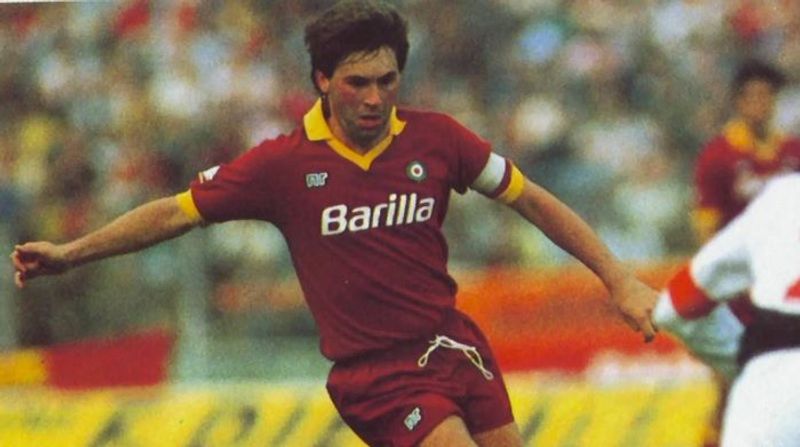
Carlo Ancelotti's early years as a player
He has led clubs in five Champions League finals, a global record, and is the only manager to have won league titles in all five of Europe's major leagues, including England (Chelsea), Italy (AC Milan), Spain (Real Madrid), Germany (Bayern Munich), and France (PSG).
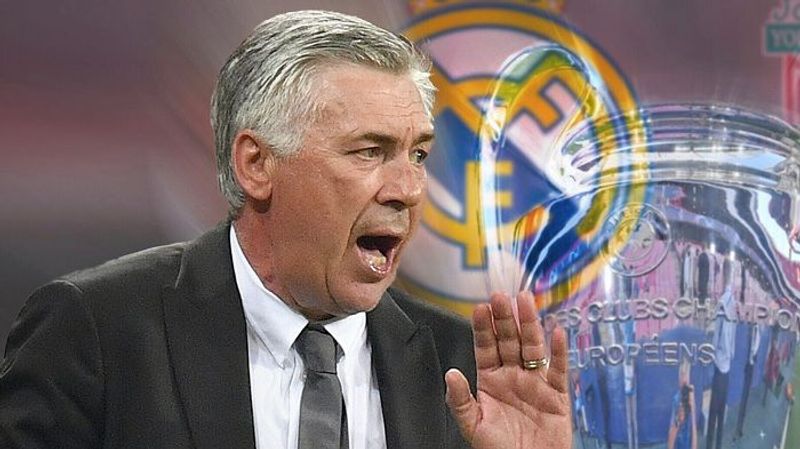
He has led clubs in five Champions League finals, a global record
He also played for Parma, AS Roma, and AC Milan before moving on to manage Reggiana, Parma, Juventus, AC Milan, Chelsea, Paris Saint-Germain, Real Madrid, Bayern Munich, Everton, and Napoli.
Ancelotti is known for his formation flexibility, having chosen to accommodate star players wherever possible despite having a personal preference for a 4-4-2 formation. Antonio Conte, Zinedine Zidane, Andrea Pirlo, Ashley Cole, Didier Drogba, Zlatan Ibrahimovic, and Sergio Ramos are among the great players who have thrived under Ancelotti.
II. Early Life and Career
2.1 The Early Life of Carlo Ancelotti
Carlo Ancelotti was born on June 10, 1959, in Reggiolo, a small town in the Emilia-Romagna region of Italy. His father was a farmer, and his mother worked in a cheese factory, and they lived modest life. Growing up, Carlo Ancelotti was known for his intelligence and good nature, which made him a popular figure among his peers.
As a child, Carlo Ancelotti was passionate about sports, particularly football. He began playing football at a young age, and his natural talent quickly became apparent. Carlo's first club was Parma, where he played for the youth team before being promoted to the senior team at the age of 18.
2.2 The Career of Carlo Ancelotti
Ancelotti's professional career began in 1976 when he joined the Italian club Parma. He played for the club for eight years before moving to Roma, where he became a key player in the midfield. Ancelotti's performance at Roma earned him a place in the Italian national team, where he played as a midfielder and won the World Cup in 1982.
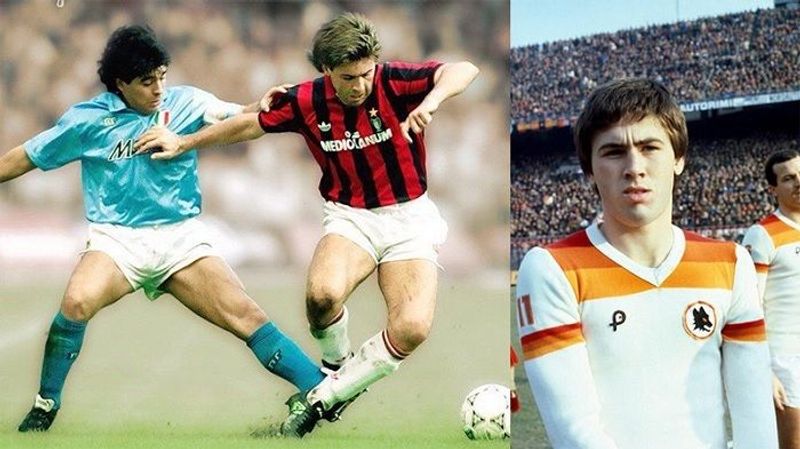
After leaving Roma, Ancelotti played for AC Milan
After leaving Roma, Ancelotti played for AC Milan, which proved to be the turning point in his career. He played for Milan for eight years, helping the club win two European Cups, two Serie A titles, and two Intercontinental Cups. Carlo Ancelotti's success as a player at Milan was the foundation for his later success as a manager.
III. Rise as a Football Manager
3.1 The Early Years of Carlo Ancelotti at Reggiana
Ancelotti started his career as a football manager at Reggiana in 1995. At that time, Reggiana was a relatively small club, playing in Serie B, the second tier of Italian football. Ancelotti took charge of the team and immediately made an impact. He led the team to promotion to Serie A in his first season as manager.
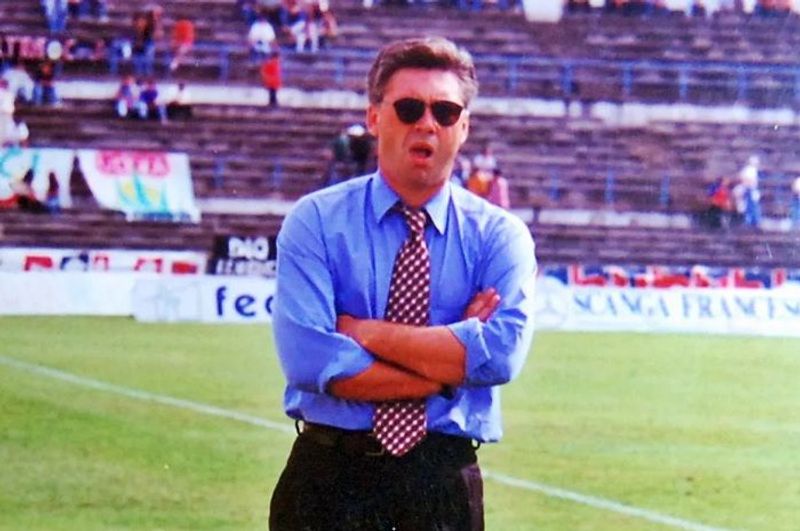
The Early Years of Carlo Ancelotti at Reggiana
Ancelotti's success at Reggiana was due to his tactical prowess and ability to get the best out of his players. He implemented a style of play that was based on possession and passing, which allowed his team to control the game. His tactics were revolutionary at that time and would later become the norm in modern football.
3.2 Carlo Ancelotti's Success at Parma
In 1996, Ancelotti was appointed as the manager of Parma. At that time, Parma was a mid-table team in Serie A. Ancelotti took over the team and immediately set about transforming it into a force to be reckoned with. Ancelotti's success at Parma was due to his ability to identify and nurture young talent. He was responsible for bringing in players such as Gianluigi Buffon, Lilian Thuram, and Hernan Crespo, who would go on to become world-class players.
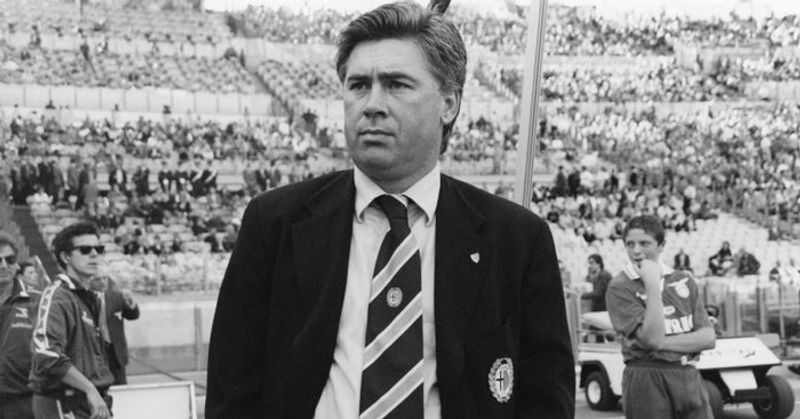
Carlo Ancelotti's Success at Parma
Under Ancelotti's guidance, Parma won two UEFA Cups, one Coppa Italia, and one Supercoppa Italiana. His team played an attacking style of football, which was exciting to watch and was feared by their opponents.
IV. Success at AC Milan
Ancelotti took over as manager of AC Milan in 2001, replacing Fatih Terim, who had only been in charge for six months. Ancelotti's appointment came at a time of transition for the club, with a number of key players have left in the years leading up to his arrival. The new manager was tasked with rebuilding the team and returning them to the top of Italian and European football.
4.1 The Tactic Changes
One of the key changes that Ancelotti made upon his arrival at Milan was to switch the team's formation from a 4-4-2 to a 4-3-2-1. This formation, also known as the Christmas tree, saw the team line up with three central midfielders and two attacking midfielders behind a lone striker. This system allowed Milan to control the midfield and dominate possession, while also providing ample attacking options.
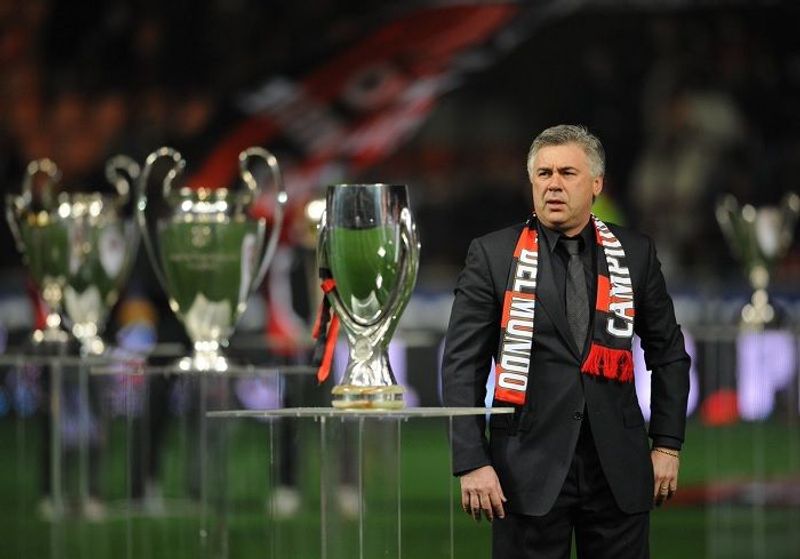
Ancelotti's tenure at Milan was undoubtedly the club's most successful period in recent memory
Ancelotti's tenure at Milan was undoubtedly the club's most successful period in recent memory. During his eight years in charge, Milan won the Serie A title once, the Italian Super Cup twice, and the UEFA Champions League twice. They also reached the final of the Champions League on two other occasions, only to be denied by Liverpool and Barcelona respectively. Ancelotti's Milan was renowned for their attacking prowess, with the likes of Kaka, Clarence Seedorf, and Andriy Shevchenko spearheading their offensive efforts.
4.2 The Key Players
As mentioned, Ancelotti's Milan boasted a number of world-class players, but perhaps none were more important than Kaka. The Brazilian midfielder was a key part of the team that won the Champions League in 2007, scoring 10 goals in the competition and being named the competition's best player. Other notable players from that era include Andrea Pirlo, Gennaro Gattuso, Paolo Maldini, and Filippo Inzaghi.
4.3 The Success of the 2002-03 Season
In the 2002-03 season, Ancelotti led AC Milan to their first Champions League triumph in over a decade. Milan faced off against fierce rivals Juventus in the final, which ended in a 0-0 draw after extra time. Milan eventually won the match on penalties, with Ancelotti's tactics and substitutions playing a crucial role in the victory.
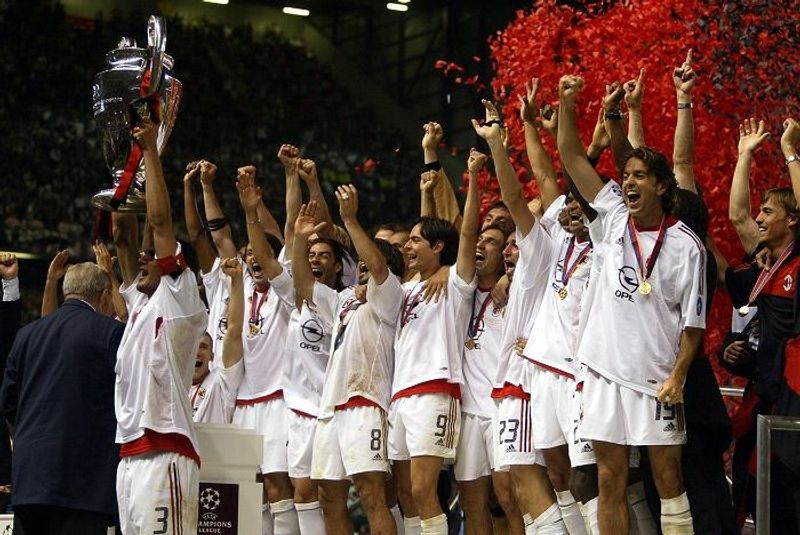
Ancelotti led AC Milan to their first Champions League triumph
4.4 The Dominant 2003-04 Season
The 2003-04 season was arguably Ancelotti's most successful season at AC Milan. Milan won the Serie A title in dominant fashion, finishing 11 points ahead of second-placed Roma. Ancelotti's team also reached the final of the Champions League for the second consecutive year, where they faced off against Liverpool.
AC Milan: The 2000s
The match was a thriller, with Milan leading 3-0 at half-time before Liverpool staged a remarkable comeback to win 3-2 on penalties. Despite the heartbreaking loss, Ancelotti's team had a memorable season and earned widespread admiration for their attacking flair and tactical nous.
4.5 The Triumph of 2006-07 Season
After a few relatively quiet seasons, Ancelotti led AC Milan to their seventh Champions League title in the 2006-07 season. The team faced Liverpool again in the final, and this time they emerged victorious with a 2-1 win. Ancelotti's tactical acumen was once again on display, as he made a number of astute substitutions that helped Milan secure the win.
4.6 Ancelotti's Legacy at AC Milan
Ancelotti's success at AC Milan made him a legend among the club's fans and cemented his reputation as one of the best managers in the game. He was known for his calm demeanor, tactical flexibility, and ability to get the best out of his players. His teams were also known for their defensive solidity, with Milan conceding just 24 goals in 38 league matches in the 2003-04 season.
V. Coaching Stints at Other Clubs
Carlo Ancelotti has established himself as one of the most successful coaches in modern football, winning numerous titles in his storied career. Over the years, he has worked with some of the best players in the world, and his tactical nous and man-management skills have earned him a reputation as one of the game's most respected coaches.
5.1 Chelsea (2009-2011)
Ancelotti joined Chelsea in the summer of 2009, taking over from Guus Hiddink. In his first season in charge, he guided the Blues to a league and FA Cup double, playing an attacking brand of football that was a joy to watch. Ancelotti's Chelsea side was built around a solid defense, with John Terry and Ricardo Carvalho forming a formidable partnership at the back. In midfield, Frank Lampard and Michael Ballack provided the creative spark, while up front, Didier Drogba was the team's talisman, scoring 29 goals in all competitions.
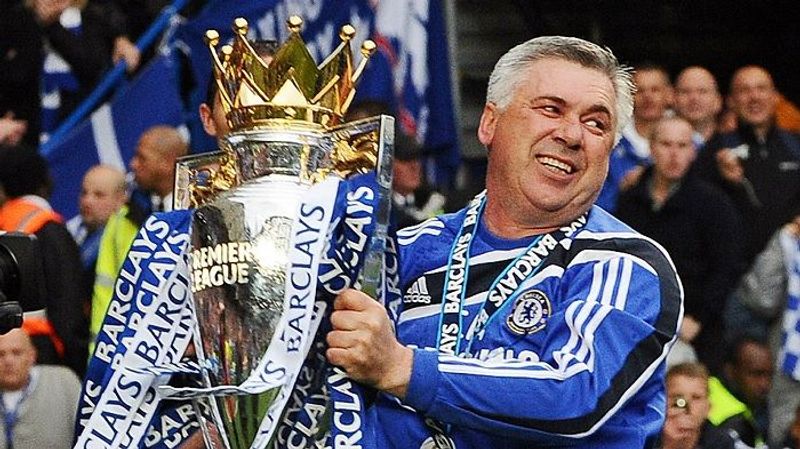
Ancelotti joined Chelsea in the summer of 2009
In his second season at Chelsea, Ancelotti failed to replicate the success of his debut campaign. The team's form dipped, and they finished second in the Premier League, behind Manchester United. However, Ancelotti's Chelsea did manage to reach the quarter-finals of the Champions League, where they were knocked out by eventual winners, Manchester United.
5.2 Paris Saint-Germain (2011-2013)
After leaving Chelsea, Ancelotti took over at Paris Saint-Germain in December 2011. He inherited a team that was full of potential but lacked the experience to win titles. Ancelotti's first task was to strengthen the squad, and he did so by bringing in the likes of Thiago Silva and Zlatan Ibrahimovic.
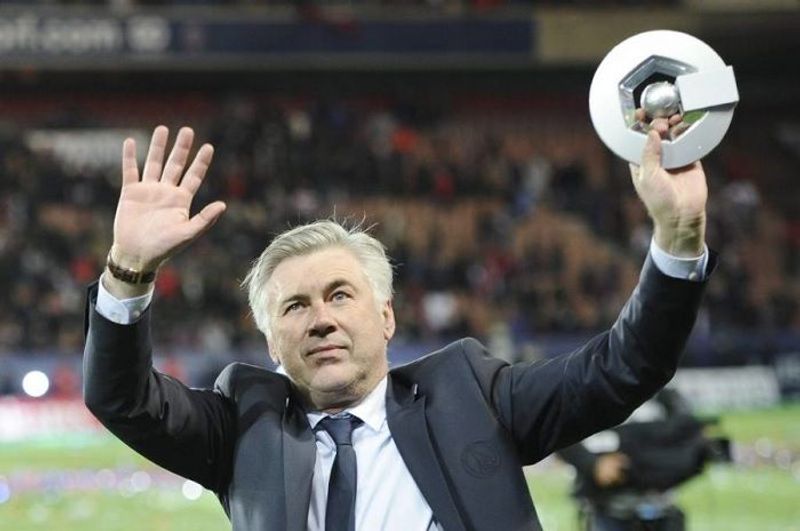
Ancelotti took over at Paris Saint-Germain in December 2011
In his first full season at PSG, Ancelotti led the team to their first Ligue 1 title in 19 years. The team played an attacking brand of football, with Ibrahimovic scoring 30 goals in the league alone. Ancelotti's tactical flexibility was on full display, as he experimented with different formations and personnel throughout the season.
In his second season at PSG, Ancelotti led the team to another league title, as well as a quarter-final appearance in the Champions League. However, he left the club at the end of the season, citing personal reasons.
5.3 Real Madrid (2013-2015)
Ancelotti joined Real Madrid in the summer of 2013, taking over from Jose Mourinho. In his first season in charge, he led the team to their tenth Champions League title, playing an attacking brand of football that was a joy to watch. Ancelotti's Real Madrid side was built around a solid defense, with Sergio Ramos and Pepe forming a formidable partnership at the back. In midfield, Luka Modric and Toni Kroos provided the creative spark, while up front, Cristiano Ronaldo was the team's talisman, scoring an incredible 51 goals in all competitions.
5.4 Ancelotti at Bayern Munich
Ancelotti took over as Bayern Munich's manager before the 2016/17 season, succeeding Pep Guardiola, who left for Manchester City. The Italian led Bayern to the German Bundesliga victory in 2016/17. Despite his success, the previous season, a tough start to the 2017/18 season and alleged conflict inside the Bayern camp finally lost him his job.
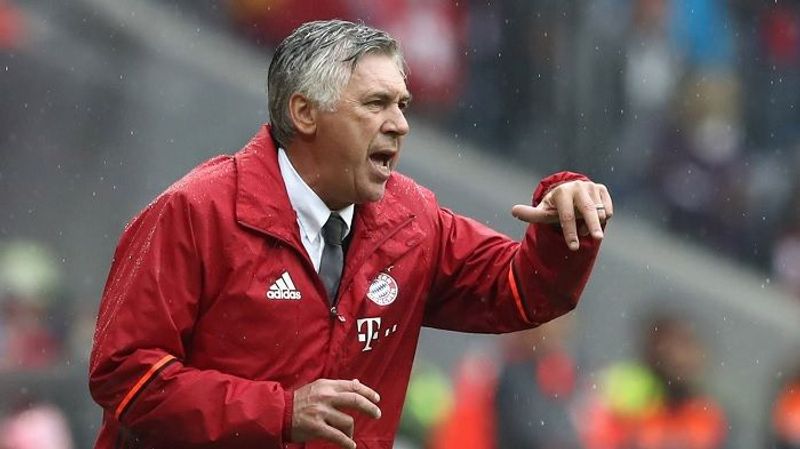
Ancelotti took over as Bayern Munich's manager before the 2016/17 season
5.5 Carlo Ancelotti and Napoli
Ancelotti took over for Chelsea-bound Maurizio Sarri as Napoli's manager before the 2018/19 season. Napoli finished a distant second behind Juventus in the Serie A title battle that season and got off to a shaky start the following season.
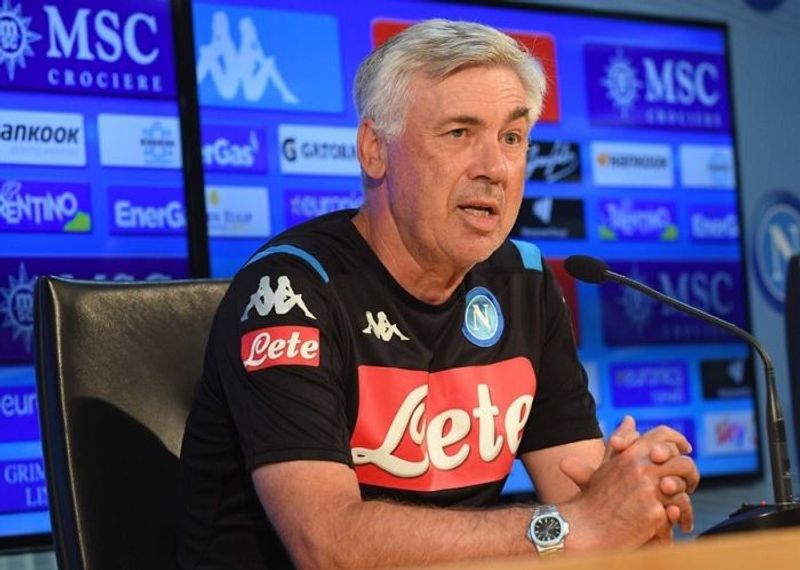
Carlo Ancelotti and Napoli
During a rough start to the 2019/20 season, tensions with owner Aurelio De Laurentiis began to rise, and Ancelotti openly declared that he did not agree with De Laurentiis' proposal that the players go into retreat until they found a solution to their bad run of form. Ancelotti was fired in December 2019 and was named manager of Everton the following month.
5.6 Experiencing Everton
Ancelotti took over an Everton squad that had been languishing in mid-table for several years despite being one of the most successful clubs in English history, having won nine Premier League titles.
In the 2019/20 season, which concluded late due to the Covid-19 epidemic, he was unable to raise Everton to 12th place. However, in preparation for his first full season in command, Ancelotti supervised a spending binge that saw the club buy players such as James Rodriguez, Abdoulaye Doucoure, and Allan.
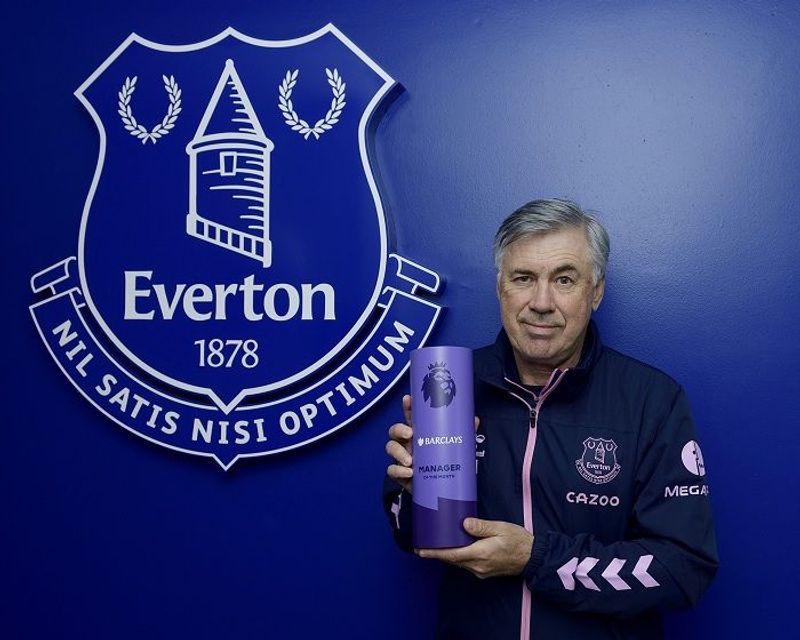
Ancelotti took over an Everton squad
Prior to Ancelotti's arrival, Everton had previous periods of high expenditure, but no manager since David Moyes had been able to persuade his players to gel as successfully as Ancelotti, with the potential exception of Roberto Martinez early in his tenure. Everton concluded the 2020/21 Premier League season in 10th position.
Ancelotti departed Goodison Park in June 2021 after 18 months in command to return to Real Madrid for his second stint as manager of Los Blancos. He called the transfer "an unexpected chance," and thanked the Everton staff and supporters.
VI. Return to Real Madrid
Carlo Ancelotti's return to Real Madrid in 2021
During Ancelotti's first stint as the manager of Real Madrid, he was unable to secure a La Liga victory. However, despite this, he managed to achieve success in both domestic and European competitions, including winning the Decima. It seemed as though his return was a chance to finish what he had started.
In the 2021/22 season, Ancelotti's Real Madrid dominated the league, winning the title with a 13-point lead over rivals Barcelona. They also won the Supercopa de Espana, and with these victories, Ancelotti has now won all six major trophies available at Real Madrid.
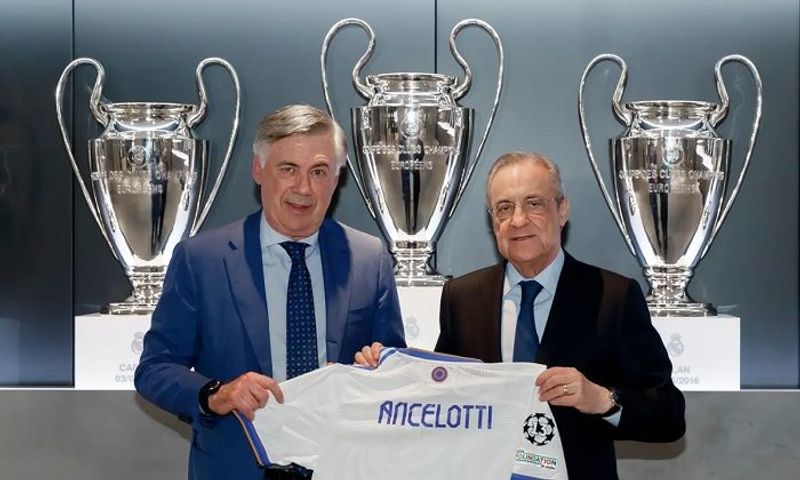
Carlo Ancelotti's return to Real Madrid in 2021
One of the key moments of the season was when Ancelotti led Real Madrid to their 14th European Cup victory. It was a dramatic journey through the Champions League knockout rounds, where they made impressive comeback wins over PSG, Chelsea, and Manchester City.
In the final match held in Paris, Vinicius scored the only goal in the 1-0 win over Liverpool, which brought Real Madrid their fifth Champions League trophy in just nine years.
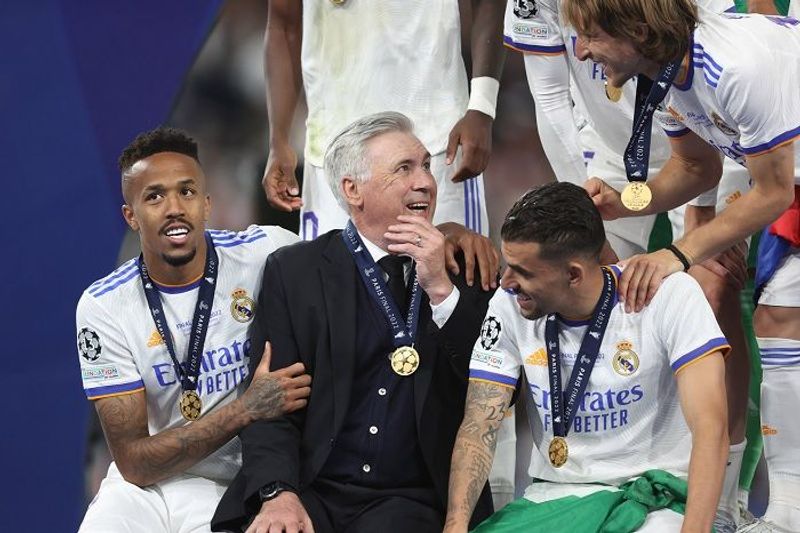
Real Madrid won their fifth Champions League trophy in just nine years
Coaching Philosophy
Carlo Ancelotti's coaching philosophy in Real Madrid since 2021 can be summarized as a focus on attacking football while maintaining a balance between defense and offense. Ancelotti emphasizes the importance of possession and maintaining control of the game, while also encouraging his players to be creative and take risks in the final third.
Under Ancelotti's guidance, Real Madrid has often played with a 4-3-3 formation, with a strong emphasis on the midfield trio of Casemiro, Luka Modric, and Toni Kroos. This midfield trio provides a solid foundation for both attacking and defensive play, allowing Real Madrid to dominate possession and control the tempo of the game.
Carlo Ancelotti's coaching philosophy in Real Madrid since 2021
Ancelotti's coaching also places a strong emphasis on building team chemistry and creating a positive atmosphere within the squad. He has spoken about the importance of communication and building relationships with his players, and his calm and measured approach has earned him the respect of the Real Madrid squad.
Overall, Ancelotti's coaching philosophy in Real Madrid since 2021 has focused on building a strong attacking team that is able to dominate possession and control the game, while also maintaining a solid defensive foundation. His emphasis on team chemistry and positive relationships with his players has also helped to create a strong team culture and sense of unity within the squad.
VII. Legacy and Impact on Football
Coaching Style and Philosophy
Ancelotti is known for his calm and composed demeanor, both on and off the pitch. He is a tactical mastermind and is famous for his ability to adapt his tactics to suit different opponents. Ancelotti's coaching style emphasizes teamwork, discipline, and organization. He believes in a possession-based style of play that is focused on maintaining control of the ball and creating scoring opportunities through patient build-up play.
Success with Top Clubs
Ancelotti has managed some of the world's top football clubs and has achieved great success with them. At AC Milan, he won the Serie A title in 2004 and led the team to two Champions League titles in 2003 and 2007. At Chelsea, he won the Premier League title in 2010, and at Real Madrid, he won the Champions League in 2014. Ancelotti also led Bayern Munich to three consecutive Bundesliga titles in 2016, 2017, and 2018.
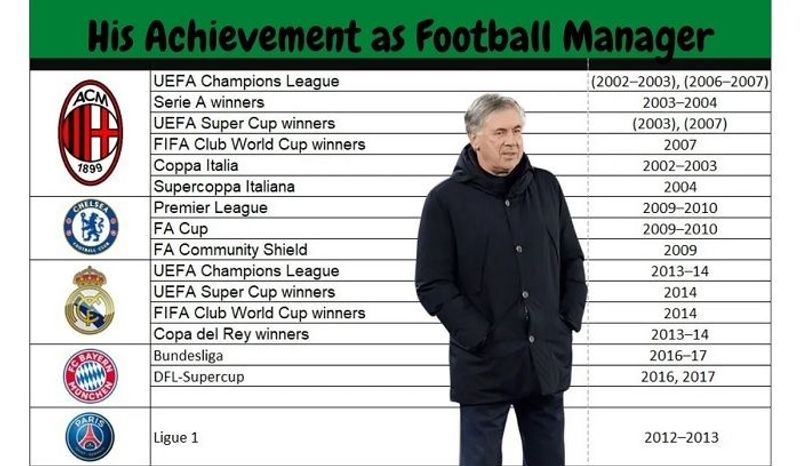
Ancelotti has achieved great success with some of the world's top football clubs
Impact on Players and Teams
Ancelotti's impact on the players and teams he has managed has been significant. He has a reputation for being a players' coach, and his calm and composed demeanor helps him to build strong relationships with his players. Many of his former players have spoken highly of him and credited him with helping them to develop their skills and reach their full potential. Ancelotti's teams are also known for their disciplined and organized style of play, which has helped them to achieve great success on the field.
Challenges and Setbacks
Despite his many successes, Ancelotti has faced several challenges and setbacks in his career. He was sacked from his position as Chelsea manager in 2011, just one season after winning the Premier League title. He was also sacked from his position as Bayern Munich manager in 2017, despite winning three consecutive Bundesliga titles. Ancelotti has shown resilience and determination in the face of these challenges, and he has always bounced back stronger.
Carlo Ancelotti: How To Win Everything, Everywhere
Ancelotti's Legacy
Ancelotti's legacy as a football manager is remarkable. He has won numerous titles and achieved great success with some of the world's top football clubs. He is also known for his calm and composed demeanor, his tactical genius, and his ability to build strong relationships with his players. Ancelotti's impact on the sport is significant, and he has inspired many young coaches to follow in his footsteps.
VIII. Conclusion
In conclusion, Carlo Ancelotti is a master tactician in the world of football, with a career that has spanned more than three decades and taken him to some of the biggest clubs in the world. His success is built on his tactical flexibility, man-management skills, and wealth of experience. Whether it's building a dominant team at AC Milan, winning titles at Chelsea and PSG, or leading Real Madrid to a record-breaking season, Ancelotti has proven time and again that he's one of the greatest managers of all time.
FAQs
- Who is the greatest football tactician?
Sir Alexander Chapman "Alex" Ferguson, or Sir Alex as he is fondly known, became manager of Manchester United in 1986. His CV is one of the most outstanding in world football today, and he is regarded as one of the best tacticians of all time.
- Who is the most tactical manager in football?
Carlo Ancelotti, one of the most tactical football managers of all time, doesn't have much more to accomplish in the game. He has already received the following honors: World's Best Club Coach twice (in 2006 and 2013/14). Winner of the Champions League four times (2002/03, 2006/07, 2013/14, and 2021/22).
- Who is the best Italian manager of all time?
Giovanni Trapattoni is the only manager to have won Serie A seven times (with two clubs).
- What type of leader is Carlo Ancelotti?
He is a democrat who does not like to force his way of life on others. "My style is not to impose," he said in 2015 to the Leaders Performance Institute. He is adamant about his conviction. "I would like to convince the players of what they are doing".

Related Content
